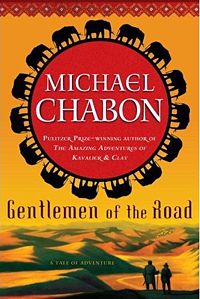The first weekend of November, I'm taking a group of musicology students to hear Nolan Gasser speak. You may not be familiar with Gassar. He's a musicologist and composer who teaches part time at Stanford, but spends most of his time working with Pandora.
I wasn't familiar with Pandora until late last spring when a student introduced me to the music genome project, an attempt to classify all music according to specific characteristics. Like the human genome project, the music genome project is an attempt to outline the fundamental stuff of music. In the project, a group of musicologists take a song and classify it according to almost 400 characteristics, from "Blazin' Rappin'" to "Interesting Part Writing" to "Wah-Wah Guitar" (you can peruse the list of characteristics here). Those characteristics are grouped according to "genes," and those genes make up the vector of each song. Those genes and vectors are then related to the vectors and genes of other songs through an algorithm to begin to find commonalities among pieces of music. It takes almost half an hour to catagorize a song, so even though they've been working since 2000, they've managed to only scratch the surface.
Still, the project is a remarkable achievement, particularly through Pandora. With Pandora, you enter a song you like and the algorithm kicks in and finds a related song you might like. You then listen to the song and tell Pandora if you like it or not. As you continually rate songs, the genes between songs you like and songs you don't like are continually compared until, theoretically, Pandora only plays songs you will like, regardless of commercial interests pushing songs on you.
This past weekend, the New York Times Magazine ran a story on Pandora and the music genome project that got me thinking about the ways Pandora is changing how we receive our music. With the iPod world, our music is extremely specialized - the notion of sitting around and listening together and sharing a sonic experience is diminished. In some ways Pandora takes the iPod idea to its logical conclusion. Now you never have to stretch yourself with music; you only hear what you already like. As a music educator there are parts of the process that thrill me (discovering new music) and parts that terrify me (boxing in musical taste). It will be interesting to see where the project develops from here.
Still, the article is worth a read if you haven't already, especially because it has given me my new favorite definition of musicologists: people "who, really, are musicians with day jobs."
Self-doubt in the tech industry
2 years ago




1 comment:
One of the things that Pandora overcomes is the fact that many of our musical tastes are already boxed in, not based on style, but on what we have happened to come into contact with. Addressing that is what Pandora is great at, b/c it allows you to find out about the obscure artist that you might like but don't yet know about yet. But to address the concern of boxing in musical tastes, I'd like them to insert some sort of randomization into the music-choosing algorithm (like, maybe one song in twenty will intentionally try to find a match that fits only 70% of the criteria as the ideal match). I'm sure some people wouldn't like this, but I think this kind of intentionally-introduced randomness into search engine results could produce some interesting serendipitous results.
Post a Comment